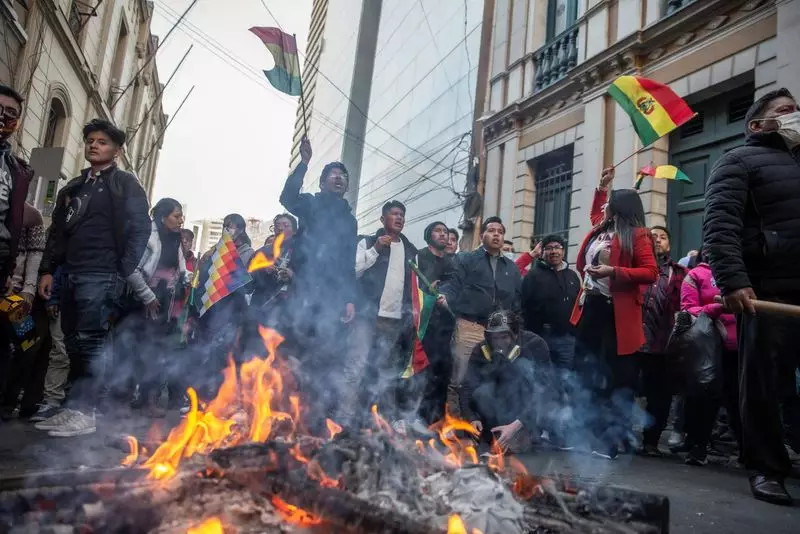The events in Bolivia on Wednesday evening saw the armed forces pulling back from the presidential palace in La Paz, signaling a dramatic turn of events in the country. General Juan Jose Zuniga, who had been recently stripped of his military command, led military units that gathered in the central Plaza Murillo square, leading to the arrest of the general and a swift response from President Luis Arce.
President Arce wasted no time in condemning what he described as an “attempted coup d’état” against his government. He called for international support and urged the Bolivian people to mobilize in defense of democracy. This strong stance, coupled with the swift arrest of General Zuniga, served to defuse the immediate threat but left lingering tensions in the air.
Political Uncertainty
The political landscape in Bolivia has been fraught with uncertainty, with the upcoming general elections in 2025 looming large. The rivalry between leftist ex-President Evo Morales and President Arce has created a deep divide within the ruling socialist party and has left many in the country on edge. The ousting of Morales in 2019 and the subsequent election of President Arce in 2020 have not fully healed the wounds of the past.
The United States, along with other international partners, closely monitored the situation in Bolivia and called for calm and restraint. The strong condemnation of the coup attempt by regional leaders and beyond highlighted the importance of upholding democracy and the rule of law. Mexican President Andres Manuel Lopez Obrador expressed his full support for President Arce, while even conservative political opponents of the government in Bolivia rallied against the military action.
In the aftermath of the crisis, President Arce emphasized the need for unity and order to be restored in Bolivia. The swift appointment of José Wilson Sanchez as the new military commander sought to stabilize the situation and prevent further unrest. The call for all personnel mobilized on the streets to return to their units was a step towards de-escalation.
Investigations and Mobilization
The public prosecutor’s office in Bolivia announced its intent to launch a criminal investigation against General Zuniga and others involved in the coup attempt. Meanwhile, Evo Morales, head of the ruling MAS socialist party, urged his supporters to mobilize in support of democracy and to prevent any further violations of the constitutional order. The political landscape in Bolivia remains volatile, with tensions running high and the specter of further unrest still looming large.
The events in Bolivia serve as a stark reminder of the fragility of democracy and the importance of upholding the rule of law. President Arce’s swift response to the coup attempt, coupled with international support and regional condemnation, helped to avert a crisis. However, the underlying tensions and political rivalries in the country continue to pose a threat to stability. Only time will tell if Bolivia can emerge from this crisis stronger and more united than before.

